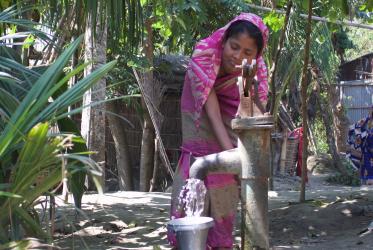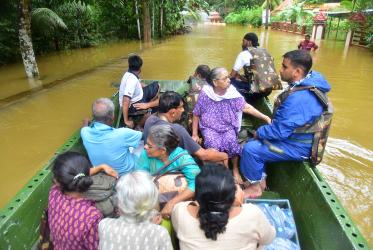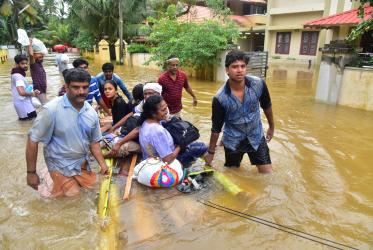Displaying 1 - 20 of 30
09 February 2024
Climate crisis fuels existing water injustice
27 October 2021
New WCC “Eco Ambassadors” pledge to protect our ecology
06 January 2020
Eco-School promotes blue communities, green churches
19 November 2019
WCC Eco-School begins in Thailand
07 November 2019
“Economy of life” lifted up at special school in Indonesia
22 August 2019
WCC represented at G20 Interfaith forum in Tokyo
13 June 2019
G20 summit: call to pray for peace in Hamburg
07 July 2017
G7 must address famine
22 May 2017













